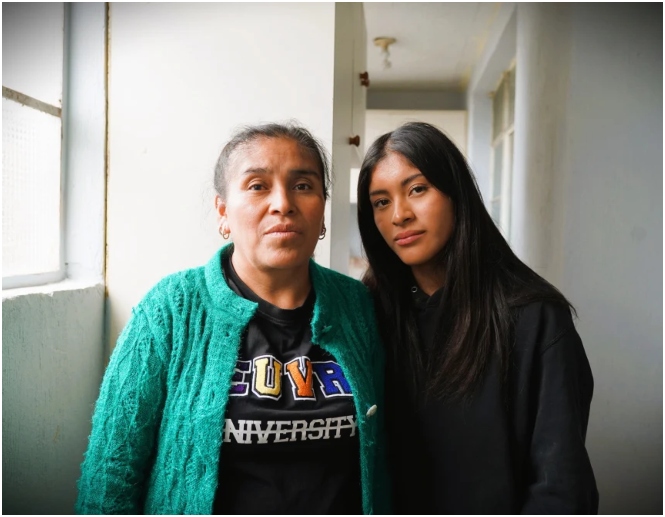The death of Estela Ramos Baten, a 45-year-old mother deported from Los Angeles to Guatemala on July 4, has reignited debate over U.S. immigration enforcement and due process protections.
MSNBC first reported the story, detailing the circumstances that led to her sudden death on September 8 and the unresolved legal questions surrounding her deportation.
Ramos Baten and her daughter, Nory Sontay Ramos, an honor student and star athlete, were detained during a routine immigration check-in in Los Angeles. Within days, they were deported despite pending appeals. Estela, who fled Guatemala in 2015 after violent threats from the 18th Street Gang, had been seeking asylum.
According to MSNBC’s reporting, Estela’s health rapidly deteriorated after her deportation. She suffered from high blood pressure and debilitating headaches, conditions she had long managed with prescription medication in the U.S. Her family says those medications were confiscated during her detention in Los Angeles and never returned. ICE disputed this account, stating she received a medical evaluation and prescriptions at the Dilley Immigration Processing Center in Texas.
On the night of her death, Nory and her sister recalled Estela refusing to leave the house for treatment due to fear of gang reprisals. She collapsed hours later. Local authorities listed “liver cirrhosis” as the cause of death, but family members told MSNBC that stress, fear, and lack of access to medication directly contributed.
Legal Fallout: Appearance of Due Process vs. Practical Harm
The case raises profound legal questions about due process in deportation proceedings, particularly when health risks and humanitarian claims are at stake. Immigration court records show Ramos Baten’s asylum request was denied because a judge determined she had failed to prove eligibility, despite documented threats and physical assaults.
Her deportation also came under scrutiny for allegedly denying communication rights. Estela and Nory told MSNBC they were not allowed to notify family before being flown to Guatemala. Belongings were confiscated, including Estela’s list of prescribed medications. Legal advocates argue this raises issues under both Fifth Amendment due process protections and international human rights obligations.
A Community in Mourning, a Legal System Under Fire
In Los Angeles, Estela’s partner and eldest daughter are left devastated. They described her death as “deportation by another name,” arguing ICE’s handling of her case led directly to her collapse. “Deportation killed her,” her partner told MSNBC.
Legal experts say the case underscores systemic flaws in immigration enforcement, including the handling of medical needs for detainees and the threshold for asylum protection in gang-related violence cases. Critics argue that the appearance of due process—a hearing and appeal rights—often fails to protect migrants from real-world harm after removal, especially in countries with documented threats.
Estela was laid to rest in her hometown of Momostenango, Guatemala, buried in a traditional Maya dress her daughters purchased as her final gift.
As Nory clung to her mother’s casket, draped in both Guatemalan and American flags, her words cut to the heart of the legal and human tragedy: “Why did you leave me?”

